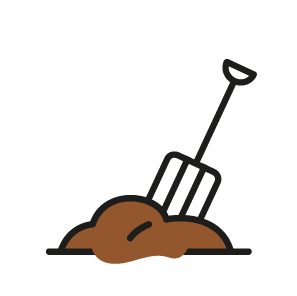| Title | Description | Download |
| OFVI_Guidelines for bio-slurry and BEC production | This report provides guidelines for the production and use of bioslurry and Bioslurry Enriched Compost (BEC). These guidelines are intended for use in Training of Trainers (ToT) sessions conducted by biodigester companies, public agricultural extension services, agro-input enterprises, and Vocational Training Centers (VTCs). They cover aspects such as product quality, shared ownership and responsibilities, and gender inclusivity. | |
| OFVI country kick-off meetings – report (Inc0) | This document reports on the kick-off meetings that took place in each OFVI country in late 2022. These meetings developed a common understanding of the activities and workplan of the OFVI project within a country-specific context. Participants included consortium members, national partners, lead implementers and other OFVI partners |
|
| Baseline current bio-slurry and BEC usage and barriers to increased organic fertiliser valorisation Burkina Faso-(Inc2) | This report presents baseline information on biodigester installation and functionality rates; practices surrounding feeding the biodigester, producing and storing slurry; making compost; applying slurry and compost on crops; motivations; informational needs; barriers to valorising organic fertiliser; and gender dynamics around the biodigester. | |
| Baseline current bio-slurry and BEC usage by biodigester households and their barriers to increased organic fertiliser valorisation – Kenya Inc2 | This report presents baseline information on biodigester installation and functionality rates; practices surrounding feeding the biodigester, producing and storing slurry; making compost; applying slurry and compost on crops; motivations; informational needs; barriers to valorising organic fertiliser; and gender dynamics around the biodigester. | |
| Baseline current bio-slurry and BEC usage by biodigester households and their barriers to increased organic fertiliser valorisation Uganda – (Inc2) | This report presents baseline information on biodigester installation and functionality rates; practices surrounding feeding the biodigester, producing and storing slurry; making compost; applying slurry and compost on crops; motivations; informational needs; barriers to valorising organic fertiliser; and gender dynamics around the biodigester. | |
| Strategy to overcome barriers to bio-slurry / BEC use – Report (Inc3) | This report presents a number of typical barriers to bioslurry and BEC use at the regional level and strategies to overcome them. Doing so, it elaborates which stakeholders are involved and what kinds of strategy exist. The report presents two tables, one for West Africa/Sahel (Burkina Faso, Mali and Niger) and one for East Africa (Kenya and Uganda). | |
| Bio-slurry & BEC Market Baseline Assessment – (Inc4) | This report provides an overview of the trade of organic fertilisers (including those derived from biodigesters) in each of the OFVI countries. It lists an inventory of enterprises active in this sector and identified challenges and opportunities around the valorisation of organic fertiliser. | |
| Literature review of best practices regarding bioslurry and bio-slurry enriched compost (BEC) application (Inc5) | This report provides an overview of bioslurry and BEC production and its use as an organic fertiliser on various crops (cereals, vegetables, grasses, tree crops, flowers) in the OFVI countries. It mainly covers agronomic and yield effects, and briefly discusses social benefits from biodigesters. | |
| The added value of bioslurry and BEC on a selection of cropping systems – part I (Inc6) | This report examines the economic value of using bioslurry and BEC as fertilizer in different cropping systems. It presents a selection of prevalent cropping systems in OFVI countries, including both staple and cash crops. It also includes an overview of climate and soil information for each country. These results are the basis for modelling crop responses to bioslurry and BEC in the implementation phase (Imp4). | |
| Influence of feedstocks on bio-slurry quality in Kenya (Inc7) | A report on how different feedstocks (materials fed into the biodigester) affect the quality of bioslurry as fertiliser. Because biogas is of course an important product of the digestion process, feedstocks are evaluated both for their biogas potential and the bioslurry quality. This analysis also includes a calculation of feedstock availability from different sectors in Kenya. 10 mixtures of feedstocks including animal manures, municipal waste, market waste, oils, fruits, vegetables and fibres are considered. | |
| Business Case Assesment for end-user: description of the approach taken and preliminary results (Inc8) | This report covers the approach used in calculating the business case for smallholder farmers with biodigesters. It focuses on return on investment either through the use of bioslurry directly on crops or its sale to other farmers. Considered costs include the initial investment in a digester, labour costs, and agro-input costs. The results of this report contribute to the implementation phase assessment of business case for end-users of bioslurry and BEC (Imp10). | |
| OFVI strategy 2023-2025 – Report (Inc10) | At the culmination of the OFVI inception phase, this report outlines the strategy for the implementation phase. A distinction is made between country-specific points and those relevant to all countries. Strategy focuses mainly on improving farmers’ knowledge, improving assistance to biodigester companies, improving BEC production and standards, improving the enabling environment, and collaborating with other active initiatives in OFVI countries. Finally, the report provides a plan for mainstreaming gender issues into the broader OFVI implementation framework. |
